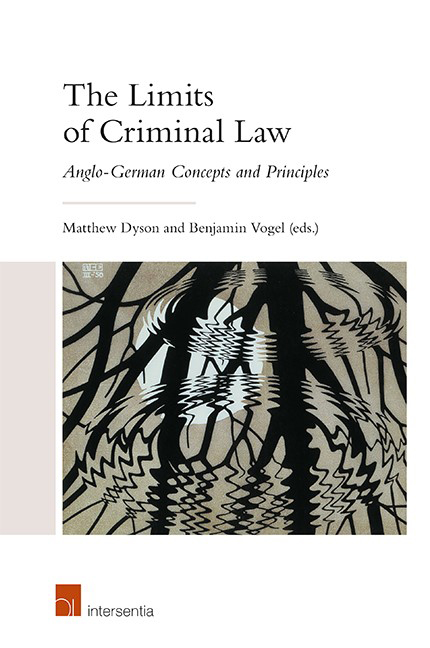Book contents
- Frontmatter
- Preface
- Contents
- List of Cases
- List of Abbreviations
- List of Contributors
- Chapter 1 Introduction
- PART I CORE PRINCIPLES OF CRIMINAL LAW
- PART II CRIME AND TORT
- PART III CRIME AND MEDICAL
- PART IV CRIME AND REGULATION
- PART V ADMINISTRATIVE SANCTIONS
- PART VI ALTERNATIVE ENFORCEMENT
- PART VII COUNTER-TERRORISM
- PART VIII CRIME AND INTELLIGENCE
- PART IX CONCLUSION
- Index
- About the Editors
Chapter 14 - The Role of Administrative Sanctions in Criminal Law: From Minor Offences to Corporate Misconduct
Published online by Cambridge University Press: 11 February 2021
- Frontmatter
- Preface
- Contents
- List of Cases
- List of Abbreviations
- List of Contributors
- Chapter 1 Introduction
- PART I CORE PRINCIPLES OF CRIMINAL LAW
- PART II CRIME AND TORT
- PART III CRIME AND MEDICAL
- PART IV CRIME AND REGULATION
- PART V ADMINISTRATIVE SANCTIONS
- PART VI ALTERNATIVE ENFORCEMENT
- PART VII COUNTER-TERRORISM
- PART VIII CRIME AND INTELLIGENCE
- PART IX CONCLUSION
- Index
- About the Editors
Summary
INTRODUCTION
This chapter will deal with aspects of administrative sanctions imposed for otherwise criminally prosecutable offences in England and Wales (making some UK-wide remarks as well). England and Wales long ago embraced sanctions that relate to an offence but are administrative in nature. Offences can be rectified with a range of sanctions, yet there has been an increasing trend of using administrative tools to deal with offences of lower importance.
This chapter will analyse these offences, starting with the least serious. It will first examine everyday administrative-like sanctions of otherwise criminal offences, which is the traditional source of application in the area. This includes a variety of out-of-court disposals (OOCDs) that range from anti-social behaviour to traffic-related offences. It will then turn to business-related offences, namely serious fraud and competition law violations. The authorities tasked with investigating such offences (for example the Competition and Markets Authority) have executive responsibilities and may issue a fine, caution or another administrative tool to conclude the investigation in question.
OUT-OF-COURT DISPOSALS
The police and the Crown Prosecution Service (CPS) have several alternatives to formal charges available to them) when dealing with offenders, both adults and minors. These include: (i) cannabis and khat warnings, (ii) simple cautions, (iii) conditional cautions, (iv) community resolutions, and (v) penalty notices for disorder. These disposals are also explored in the chapter on Alternative Enforcement, Chapter 17. The angle taken in this chapter is to examine the procedure and the underlying administrative reasoning behind issuing such sanctions. For that purpose it is considered that police officers form part of the administration, and therefore their OOCDs are administrative orders.
Through an OOCD, the offence is not further prosecuted in court. They have been in use for many years, particularly for minor traffic offences, but their range has expanded over the past few decades. Cautions for certain crimes have been around since the mid-1980s under the Police and Criminal Evidence Act. OOCDs are a more recent development introduced by the Home Office and relevant legislation.
According to the Home Office:
Out-of-court disposals allow the police to deal quickly and proportionately with low-level, often first-time offending which does not merit prosecution at court. This allows the police to spend more time on frontline duties and tackling serious crime.
- Type
- Chapter
- Information
- The Limits of Criminal LawAnglo-German Concepts and Principles, pp. 273 - 300Publisher: IntersentiaPrint publication year: 2020

